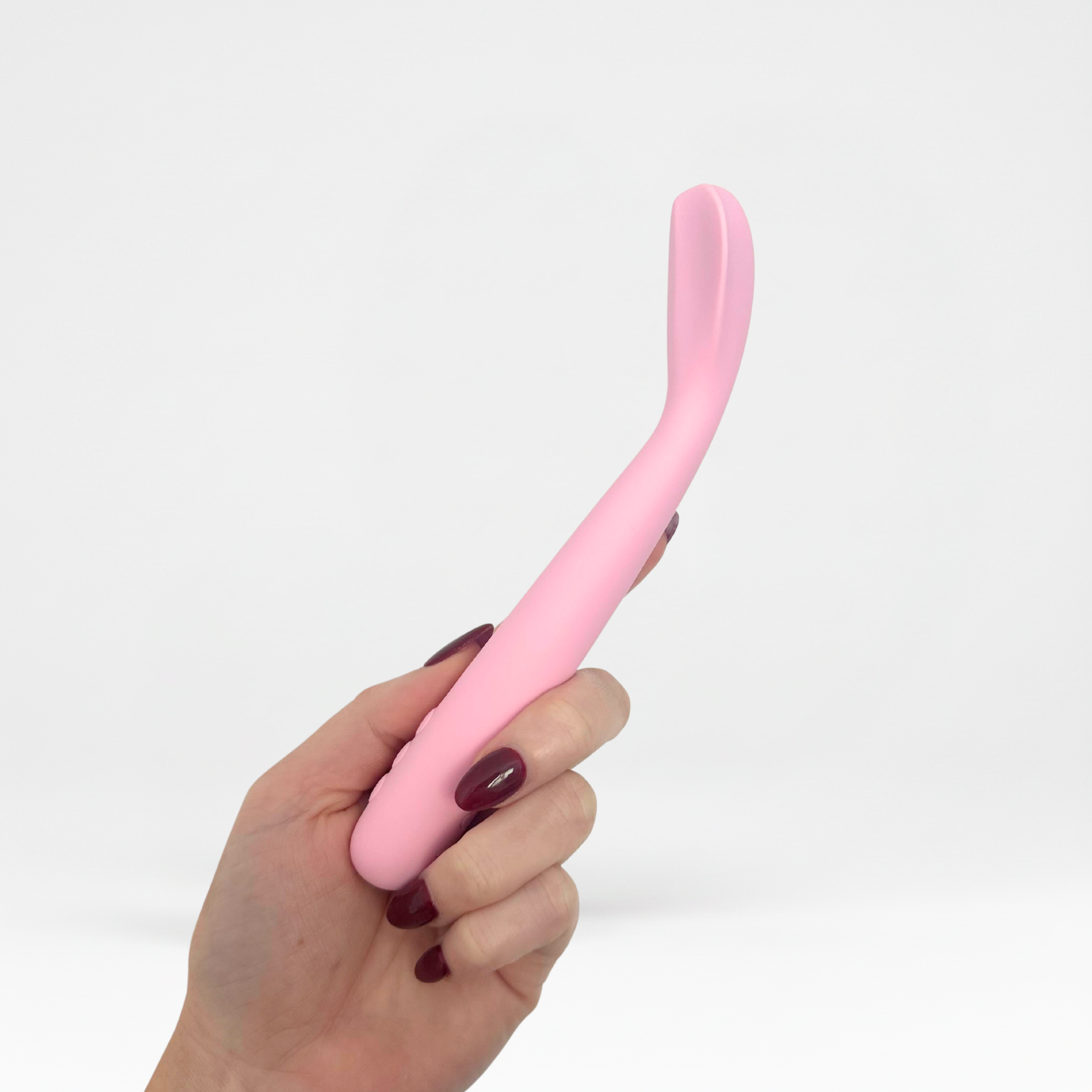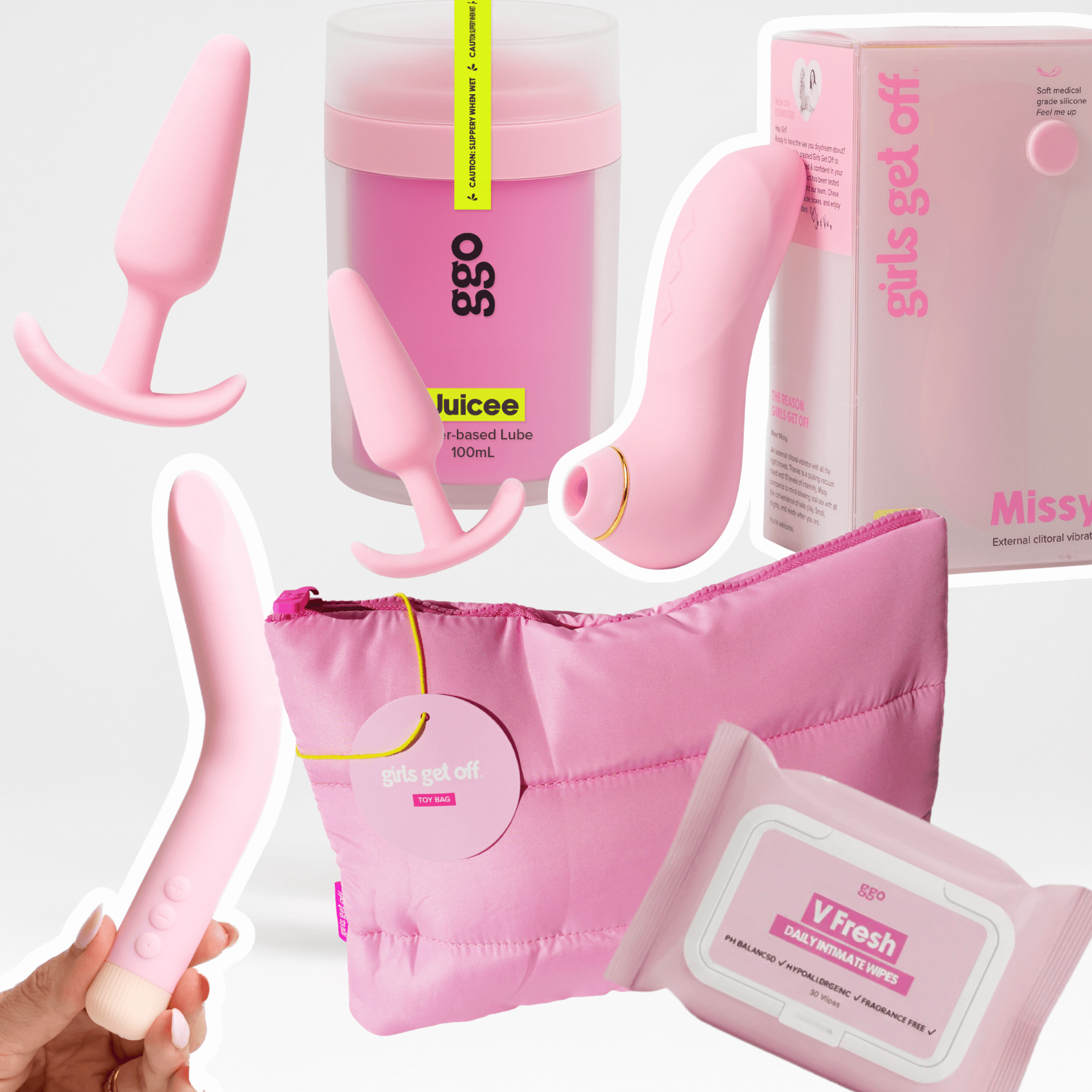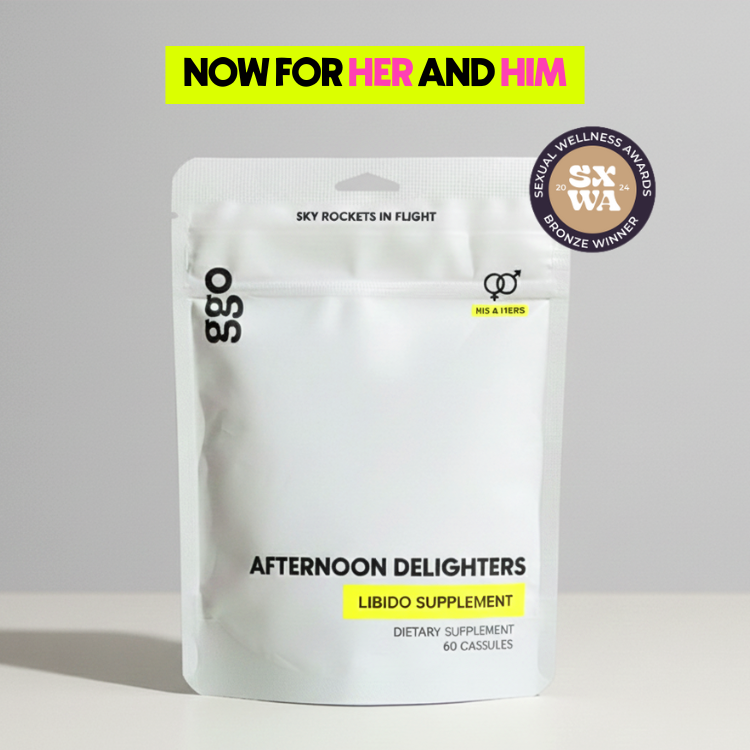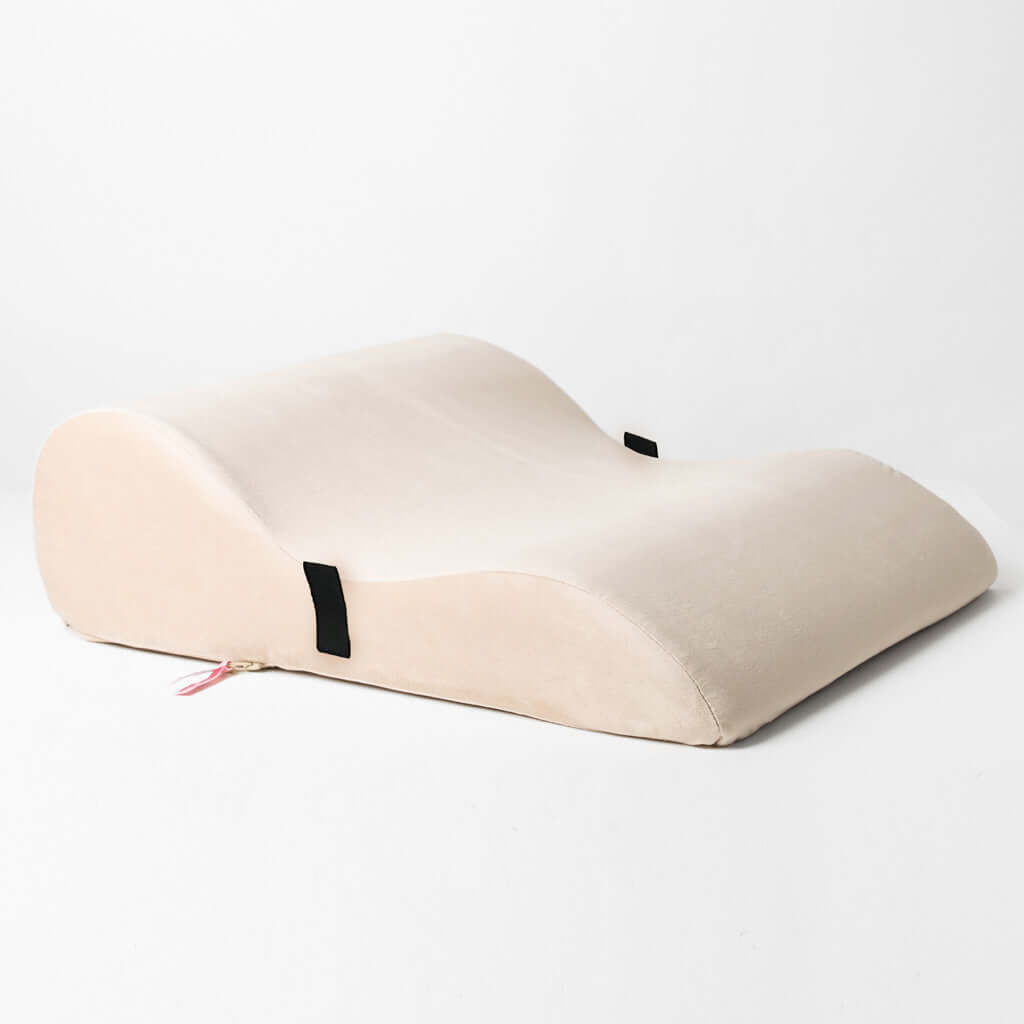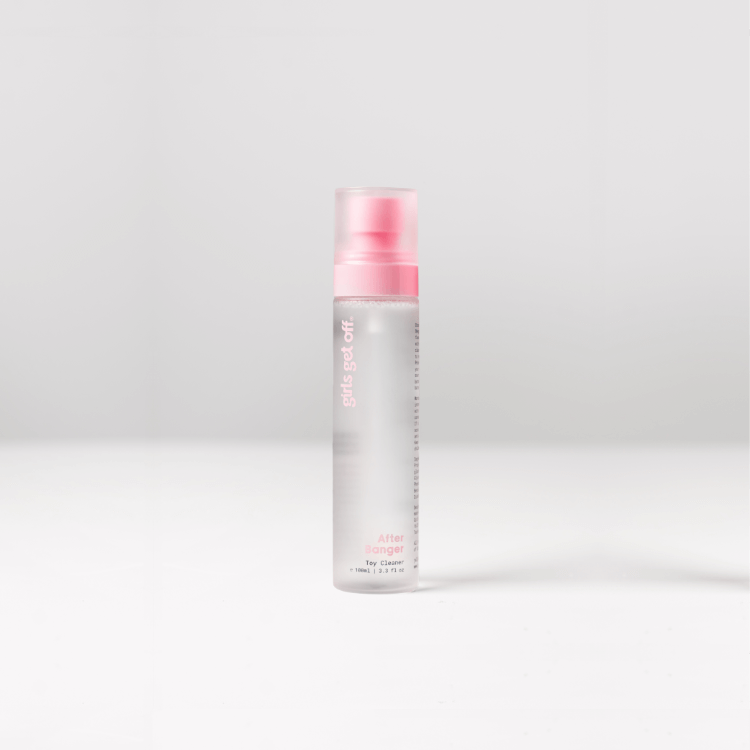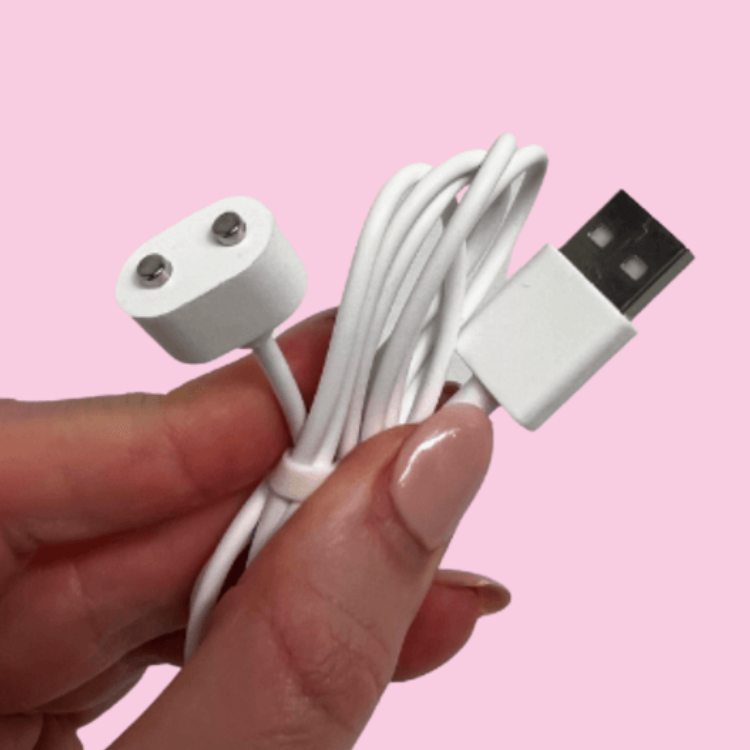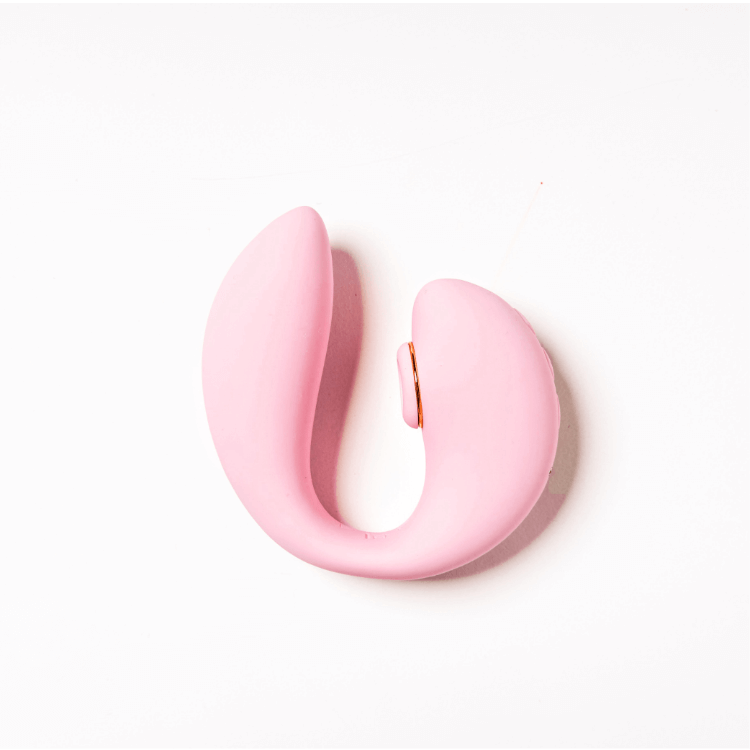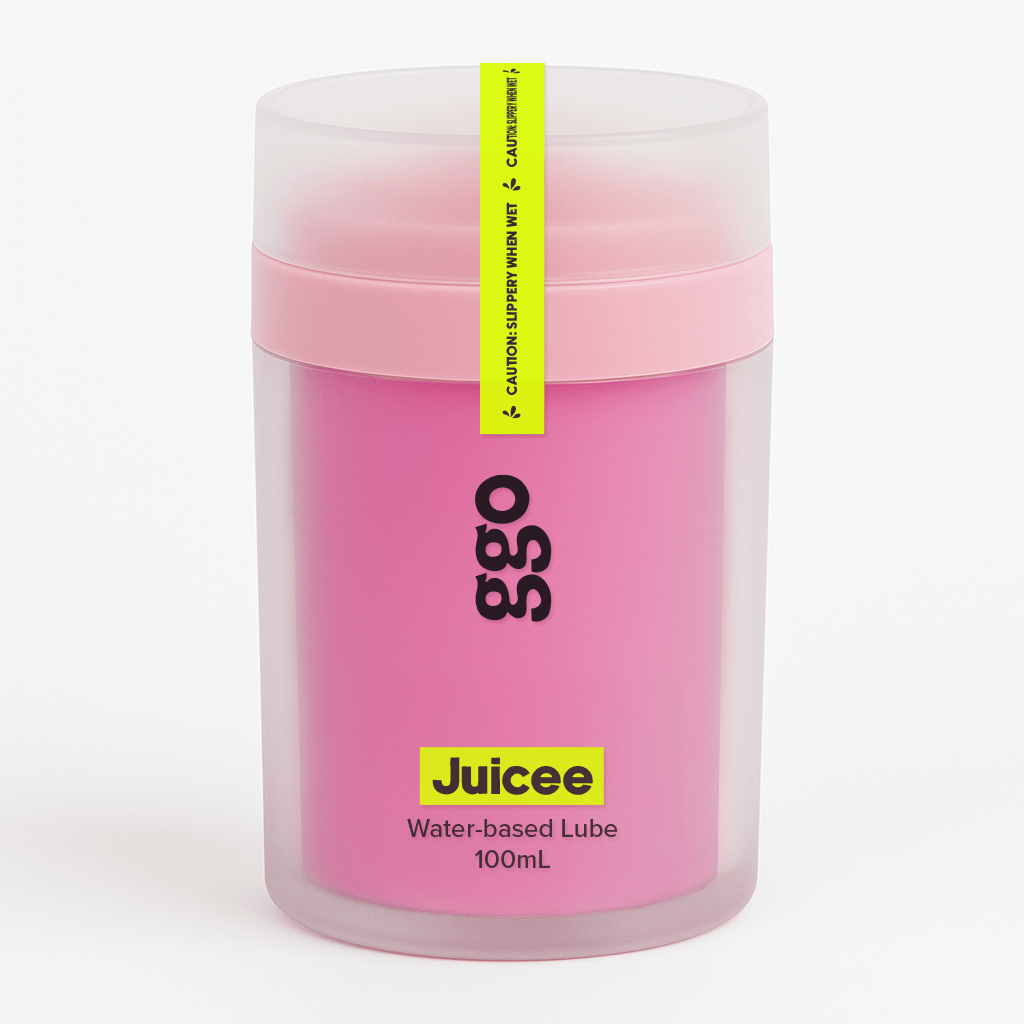Did you know that the first vibrator was first considered a medical device and was used to treat 'hysteria' in women.
We'll let that simmer.
Queens, the good news is vibrators are no longer used to treat serious conditions doctors once fobbed off as 'hysteria' back in the day. Now, they are used for pleasure and big O's.
Can we get a boo-yah?
In the years since the glorious lil tool's creation, it has become a form of female empowerment, helped build an industry worth more than $35 billion, and developed to include at least ten variations of vibrators.
We even stock a few, including Polly, a bullet vibrator; Missy Mini, a clitoral vibrator; DeeDee, a thrusting rabbit vibrator; and Wanda, a wand vibrator.
Along with all of those magnifi things, it's also created some questions. Some of those questions include; Will a vibrator replace my partner? Will a vibrator desensitise my clitoris over time? And will placing a vibrator inside my vagina cause health problems?
As your pleasure godmother, sit back, grab some popcorn and relax. We're here to answer all your questions so you can vibe away in peace.
WHAT DOES THIS ARTICLE INCLUDE? |
|
1. Will a vibrator replace my partner?
Regardless of your sexual orientation, age or relationship status, vibrators can play a major part in your sex life and sometimes, that results in men, in particular, feeling threatened or insecure. Please note: it doesn't mean every man is threatened by the use of a vibrator; there are just as many, if not more, who are huge advocates for the toy.
Those with a problem with their partner using the device may often realise that off feeling is largely due to misunderstanding. Vibrators cannot replace the intimacy that comes with sex with your partner. Plain and simple.
It can, however, add something to sex - clitoral stimulation.
According to The Guardian's psychologist, Pamela Stephenson Connolly: 'Many men feel threatened by a woman's vibrator use because they assume it is a replacement penis – which is often untrue. Your wife's vibrator may be used largely to stimulate her clitoris – the female centre of pleasure.'
She continued to say that if a woman or person with a Queen V is having intercourse and there is no focus on their clitoris, it is 'understandable' if they choose to add a vibrator into the mix. This is because women and people with Queen V's are unlikely to climax through penetration. The few that can fall into a category of just 30 to 10% of people.
But where vibrators help with clitoral stimulation, they lack in creating intimate connection. Having sex with your partner releases a series of 'feel good' hormones that can help you feel emotionally and physically closer to them and can result in a stronger bond with them. Plus, isn't it just nice to kiss someone and feel their body on yours every now and then?
If you’re not sure how to introduce sex toys into your relationship, check out our blog on the topic.
SUMMARY: |
|
2. Can a vibrator desensitise my clitoris over time?
Not too long ago, the term 'dead vagina syndrome' was doing the rounds on the internet. It was one of those things that you know deep down is ridiculous, but it sounds semi legit so you can't help but feed into it (or was that just us?).
Anyway, the term basically meant that your clitoris was numb because you used your vibrator too much, thankfully, it is entirely inaccurate.
According to Healthline - who spoke to Jill McDevitt, PhD - the term is 'a nonmedical, fear-mongering term invented by people who don't really understand female masturbation, orgasms, pleasure, or vaginal and vulvar anatomy.'
It stems from the part of society that is still teaching and enforcing outdated values, including making women feel uncomfortable about taking charge of their pleasure.
The good news is, there is another part of society encourages you to take charge of your pleasure, resulting in some research into the claim. The Journal of Sexual Medicine found that your handy dandy vibe doesn't have a numbing effect and actually, it has more positive effects than anything else.
As well as being pleasurable and provoking orgasms, a vibrator can cause increased lubrication, decreased pain and less chance of needing a gyno check-up.
However, if you do happen to experience numbness on or around your clitoris, it's likely nothing to do with your vibrator and more to do with an underlying condition, stress or medication, so the publication suggests booking in for an appointment with your doctor.
SUMMARY: |
|
3. Will placing a vibrator inside my vagina cause health problems?
Queens, we've said it once, and we'll say it again; Do. Not. Put. Polly. Inside. Your. Queen. V.
She's so teeny tiny that one wrong move, one slip on lube and BAM, you're off to the emergency room asking a doctor to get her out of you with those huge forceps.
On a serious note, though, putting a vibrator inside your vagina technically shouldn't cause any health problems so long as you are doing everything you should be doing. This means ensuring the vibrator is an internal toy, making sure it is clean, and using lube when necessary.
According to the National Institute of Health, you should avoid putting some vibrators inside your Queen V. If they are made of jelly rubber, they may contain phthalates. This material is mostly safe to use, but it's recommended that you don't use it for longer than one hour a day. If you are pregnant or breastfeeding, this window is even smaller, and it's recommended that you only use it for 15 minutes a week.
Luckily for all you queens using GGO toys, you’re safe. Our products are made with medical-grade silicone.
As for using lube with your toys, if you are playing with an internal vibrator, you should always warm up and use a compatible lubricant. If you don't use lube, you can risk tearing areas of your Queen V, and if your toy hasn't recently been cleaned, it can result in nasty bacteria getting in the small cut.
But cleaning is important for more than just this reason. If you like to share toys with your partner or friend, it's extra important that they get a good wipe down or scrub in between each person's turn. If you don't, Smart Sex Resource has reported that you can risk contracting PID, pelvic inflammatory disease.
Sexually transmitted infections can also be spread through the use of shared sex toys - especially if they are made from non-porous materials (medical grade silicone or glass), which includes GGO toys.
SUMMARY: |
|
4. Can I use a vibrator with lubricant?
You absolutely can, queen! Slip n' slides aren't just reserved for the water park. In fact, vibrators feel a lot better with lube regardless of whether they are internal, external or a bit of both.
When choosing what lube to purchase, it's important to check what your toys are compatible with. There are many different types of lubes, waterbased, silicone, flavoured, oil, temperature, you name it, it's available, and some aren't the greatest to be used with toys.
Healthline reported that waterbased lube is great for silicone-based toys; it's also safe to use with condoms and won't stain your sheets. Meanwhile, silicone-based lube can deteriorate silicone toys, but it is longer-lasting and good for sensitive skin. Oil-based lube is not only long-lasting but can also double as a massage oil. While it's compatible with silicone toys, it's not as compatible as the other lubes with condoms, as there have been cases where it rips or tears the rubber.
So, the short answer is yes, you can use lube with your toys. The long answer is yes, but make sure you double-check what lubricants your toys are compatible with. You don't want to accidentally deteriorate them while you're getting down and dirty.
SUMMARY: |
|
5. What is the best vibrator for a beginner?
Choosing your first sex toy can be complicated as heck, especially when you jump on the web and realise just how many there are to choose from.
It’s enough to make a girl want to, well… grab a vibe and ease her stress.
Thankfully, it doesn’t have to be stressful. Here at Girls Get Off, your vibrator journey is of utmost importance and if you’re not sure where to start, there is an entire blog you can read to learn about the best beginner vibes.
To summarise though, your best bets are bullet vibrators, wand vibrators and clitoral suction vibrators. They’re all easy to use, quiet and non-intimidating. What more could a girl want?
SUMMARY: |
|

